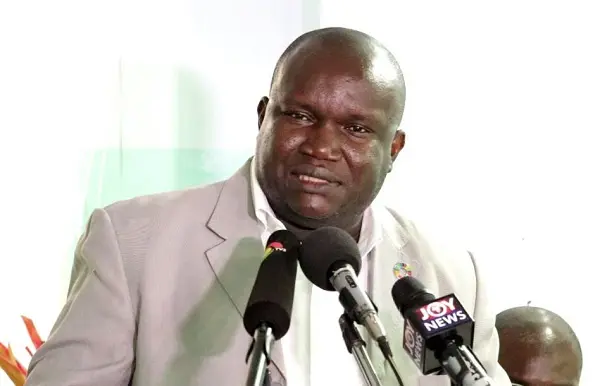The Convenor of the Media Coalition Against Illegal Mining has called for decisive action against traditional leaders who facilitate illegal mining activities, including the possible confiscation of lands from chiefs complicit in galamsey operations. Ing. Dr. Ken Ashigbey made the bold proposal during an appearance on TV3’s The Key Points program on Saturday, emphasizing that Ghana’s fight against illegal mining cannot succeed while some chiefs actively enable environmental destruction.
“We need the National House of Chiefs to start calling out Chiefs who are complicit in the illegal mining activity,” Ashigbey stated. “We may also have to consider confiscating lands from chiefs who are involved in giving our lands to illegal miners.”
The call represents an escalation in efforts to hold traditional authorities accountable for their role in Ghana’s ongoing environmental crisis. Ashigbey emphasized that chiefs occupy a crucial position in the governance of land and natural resources, making their accountability essential to protecting the environment. According to him, preserving the integrity of the chieftaincy institution requires ensuring that no chief contributes to the ongoing destruction of Ghana’s forests and water bodies.
Beyond demanding internal accountability among traditional authorities, Ashigbey warned of severe long-term economic consequences stemming from illegal mining activities. He cautioned that continued pollution of the country’s mineral resources could soon affect Ghana’s reputation and earnings on the international market, potentially devastating the nation’s gold export sector.
“Our gold may soon be rejected on the international market due to the increasing scale of contamination by illegal miners,” he warned, painting a bleak picture of the current situation.
The environmental advocate noted that illegal mining has led to widespread mercury pollution and environmental degradation threatening both local livelihoods and national economic stability. The contamination affects not only the purity of gold exports but also destroys water bodies and agricultural lands that communities depend on for survival.
Ashigbey’s comments come amid growing frustration with the pace of action against illegal mining despite repeated government commitments. The Media Coalition Against Galamsey has been at the forefront of advocacy efforts, pushing for concrete measures beyond rhetoric and political promises.
The Convenor urged urgent, coordinated action between government, security agencies, and traditional authorities to stop the menace. He stressed that the window for dialogue without action has closed, requiring immediate enforcement measures against all parties enabling illegal mining regardless of their position or influence.
“The time for talking is over,” Ashigbey emphasized. “We must hold everyone accountable, especially those with the authority to protect the land but who instead choose to sell it to destroyers.”
The proposal to confiscate lands from complicit chiefs would represent a significant shift in how Ghana addresses traditional authority involvement in illegal mining. Currently, chiefs hold lands in trust for their communities under customary law, but critics argue this system has been exploited by some traditional leaders who lease lands to illegal miners for personal gain.
Ashigbey’s call adds to mounting pressure on the National House of Chiefs to take a more active role in policing its members. The organization has previously issued statements condemning illegal mining but has faced criticism for not taking stronger action against specific chiefs identified as enablers of galamsey operations.
The galamsey crisis has become one of Ghana’s most pressing environmental challenges, with illegal mining operations devastating river systems, forest reserves, and agricultural lands across multiple regions. Despite various government task forces and military deployments, illegal mining continues to proliferate, suggesting deeper systemic issues involving powerful actors.
Civil society organizations and environmental advocates have repeatedly pointed to the involvement of traditional authorities, politicians, and business interests as key factors preventing effective enforcement. Ashigbey’s latest comments reflect growing consensus that addressing the crisis requires confronting these power structures directly rather than focusing solely on small-scale operators.
As Ghana grapples with balancing economic opportunities from mining with environmental protection, the debate over traditional authority accountability highlights broader questions about land governance, resource management, and the enforcement of environmental laws in communities where customary and statutory legal systems intersect.
Source: newsghana.com.gh











